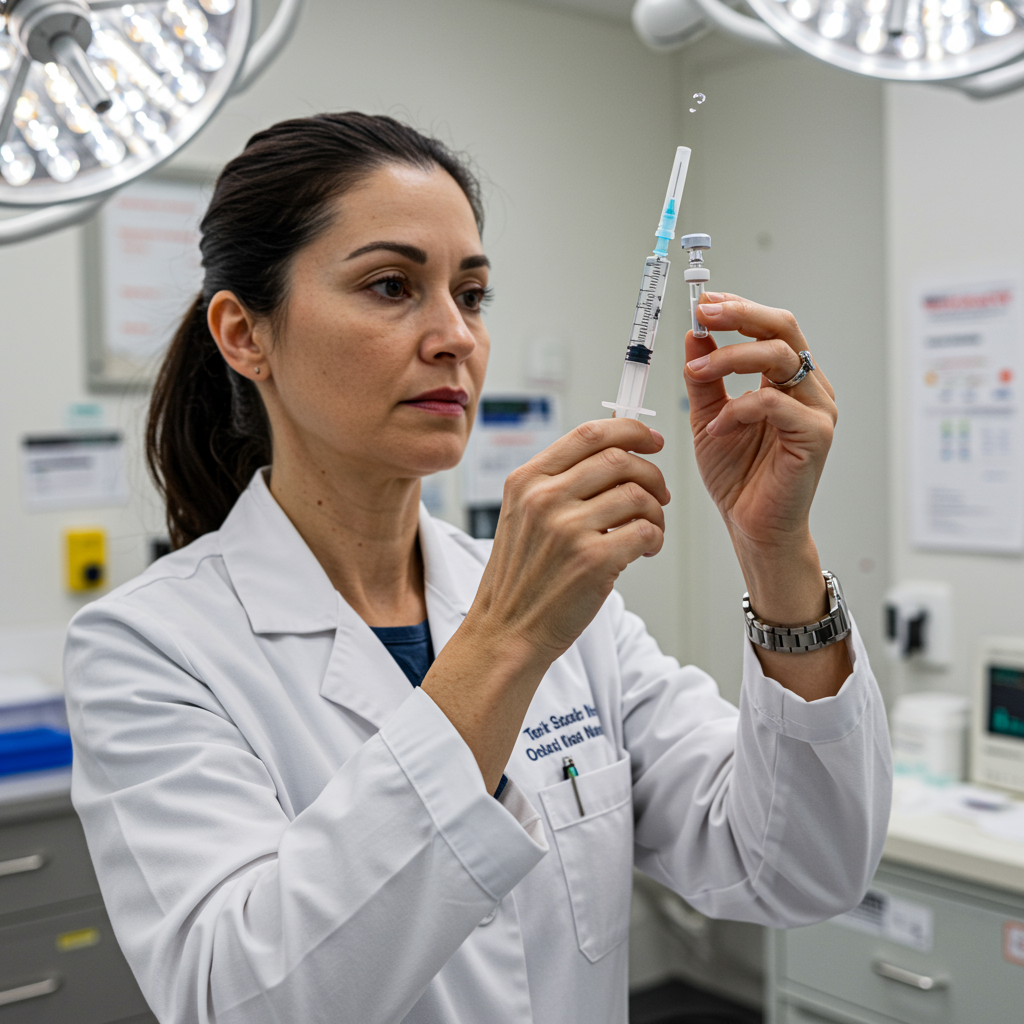A new medication offering groundbreaking potential in the fight against HIV has recently received U.S. regulatory approval for prevention. Hailed by experts as a “wonder drug” and even named a “Breakthrough of the Year” by Science magazine, lenacapavir stands out for its long-acting nature, requiring an injection only twice a year.
While pre-exposure prophylaxis (PrEP) medications have been available for years, providing highly effective protection against HIV infection, lenacapavir (marketed for prevention as Yeztugo by Gilead Sciences) offers a significantly simpler regimen compared to daily oral pills or even earlier injectable options given every two months. This ease of use is seen as a critical factor in improving adherence and reaching more people at risk globally.
The ongoing HIV epidemic continues to affect millions worldwide, with 1.3 million new diagnoses each year. Innovations like lenacapavir are considered essential tools in accelerating progress toward ending the AIDS pandemic as a public health threat.
How Lenacapavir Works
Lenacapavir is an antiretroviral drug administered via injection into the arm, thigh, or stomach. Unlike other drugs that target later stages, lenacapavir works by disrupting the HIV virus at multiple points in its lifecycle. It rigidifies the virus’s protective shell, the capsid protein, effectively blocking crucial steps the virus needs to replicate and spread within the body, should exposure occur. This novel mechanism contributes to its high efficacy.
A Game-Changer for Prevention: Why Twice Yearly Matters
Existing oral PrEP medications like Truvada are highly effective when taken daily, boasting up to 99% protection in clinical trials. However, real-world effectiveness is often hampered by the challenge of daily adherence. Factors such as forgetting doses, perceived stigma from carrying or taking pills, or the inconvenience of frequent clinic visits for prescriptions can significantly reduce protection levels. Studies have shown adherence to daily pills can be as low as 30% in some populations, leading to infection rates of around 2% even among study participants randomized to oral PrEP.
An earlier injectable PrEP, cabotegravir (Apretude), approved in 2021, requires administration every two months via a deeper intramuscular injection by a healthcare provider. Lenacapavir dramatically lowers the burden, needing just two appointments per year for the injection. This lower frequency is expected to lead to better adherence, greater uptake, and sustained long-term use, particularly benefiting those who face challenges with daily regimens or seek greater discretion. Experts suggest this shift brings HIV prevention closer to a vaccination paradigm.
Navigating the Hurdles: Cost and Access Challenges
Despite its remarkable potential, a significant barrier to widespread adoption is the current cost. Lenacapavir currently carries a price tag of over $28,000 per person per year in the U.S. (It was previously approved in 2022 under the brand name Sunlenca for treating multidrug-resistant HIV, where its treatment cost in the US was reported to be even higher, over $40,000 per year).
This cost is prohibitively expensive, especially in low- and middle-income countries, where the majority of new HIV infections occur and where even less frequent injectable PrEP options like cabotegravir ($180 per year) are considered too costly. Global health initiatives and advocates argue that the price needs to fall drastically. Encouragingly, analyses published in The Lancet HIV suggest that generic versions could cost as little as $25-$40 per person yearly with scaled-up production. Advocacy groups are urging Gilead to facilitate access by sharing patents through voluntary licensing programs that enable the production of more affordable generic versions for lower-income countries.
The US Landscape: Insurance and Policy Uncertainty
In the United States, the outlook for insurance coverage is complex. While costs for other FDA-approved HIV prevention medications have decreased over time, and many insurance plans cover preventative services under the Affordable Care Act (ACA), the guarantee of this coverage could be at risk. This coverage is often based on recommendations from the U.S. Preventive Services Task Force, whose authority is currently being challenged in the Supreme Court case Kennedy v. Braidwood Management. A ruling against the Task Force could potentially remove the requirement for insurers to cover preventative services, including PrEP.
Potential and Challenges in the Global Fight
Experts believe that timely and affordable access to lenacapavir could save millions of lives globally. Its efficacy has been particularly striking in clinical trials. The PURPOSE 1 trial, involving over 5,300 cisgender women in South Africa and Uganda, showed 100% effectiveness with zero infections among those receiving lenacapavir since the trial began. The PURPOSE 2 trial demonstrated 96% effectiveness in a diverse population of men and transgender individuals across multiple countries. These results make it “about as close as you can get to an HIV vaccine.”
However, delivering this innovation equitably remains a challenge. Communities disproportionately affected by HIV in the U.S. (such as Black, Latino, and transgender populations) and globally (like young women in Africa, gay men, and injecting drug users) must have equitable access. Healthcare providers and policymakers need to work actively to ensure the drug reaches those who need it most.
Furthermore, the broader landscape of HIV prevention funding faces headwinds. Recent policy shifts, such as the temporary freeze on federal grants under the Trump administration as part of an ideological review of spending, have caused disruption and reduced investment in global HIV prevention efforts. Experts warn that shrinking prevention funding combined with high drug costs could lead to a doubling of future treatment costs. Incorporating innovations like lenacapavir as widely and quickly as possible is crucial; failure to do so will be far more expensive in the long run.
Looking Ahead
Lenacapavir represents a significant scientific leap forward in HIV prevention, offering unprecedented convenience and high efficacy demonstrated in trials. Its potential to fundamentally alter the course of the epidemic, particularly in high-burden regions and for populations struggling with adherence to daily pills, is immense. Overcoming the critical barriers of cost and ensuring equitable access will be paramount to fully realizing the promise of this potentially transformative medication. The science has delivered an exciting new solution; now, policy and global health initiatives must catch up.




